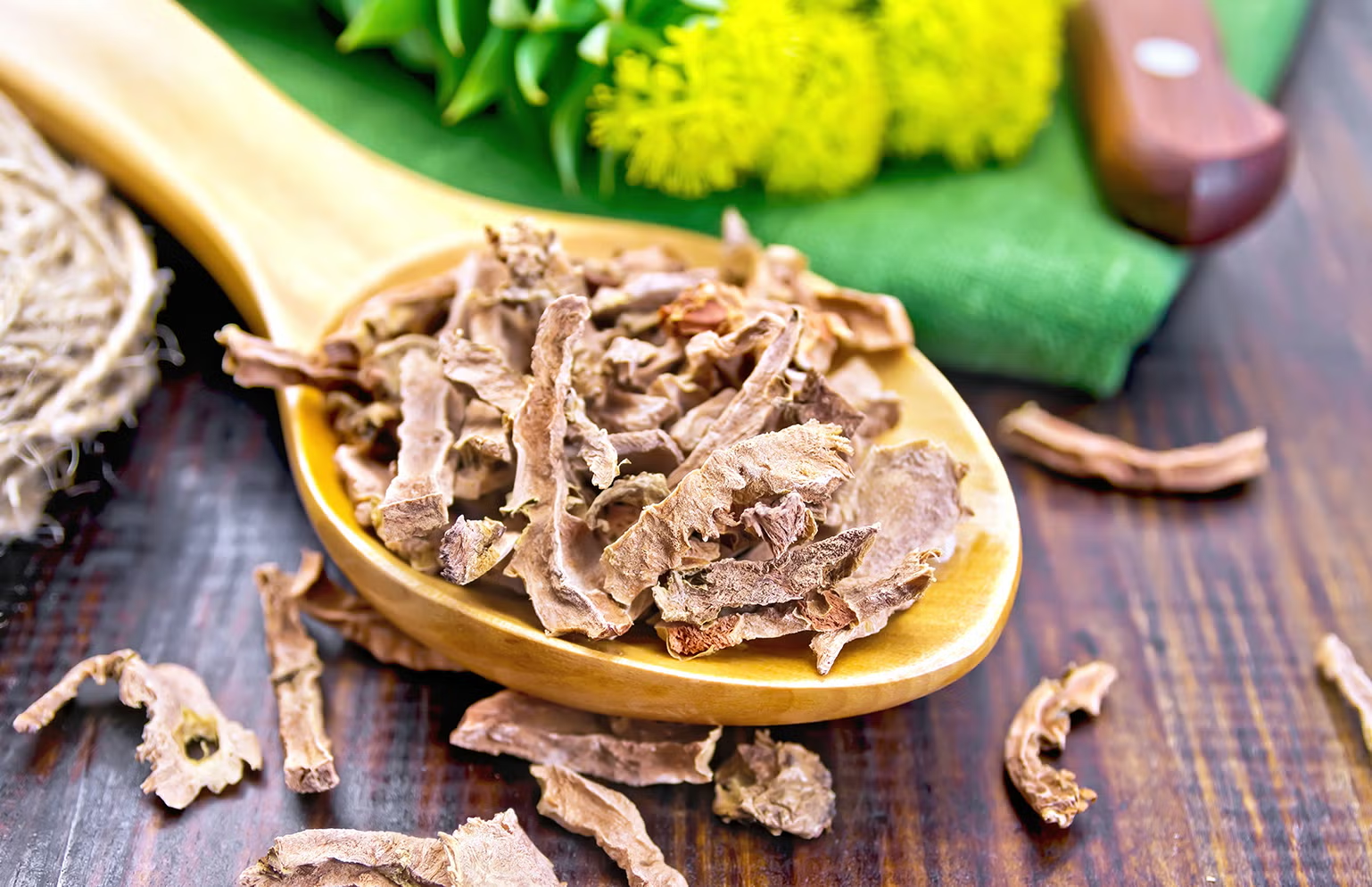
Rhodiola is a well-known herb with a long history of use in Asia, Russia and Europe. Traditional medicinal use of this plant dates back centuries.1 As one of the most popular adaptogenic supplements on the market, researchers are working hard to support claims made about this herb. Are rhodiola’s benefits worthwhile? Read on to learn more.
WHAT IS RHODIOLA?
Also known as Oriental God Grass, Roseroot, Hong Jing Tian, SHR-5 and Golden Root, the most widely studied of the rhodiola species is Rhodiola rosea. Rhodiola grows up to 15 inches tall with several yellow flowers per plant. Mostly found in the mountainous regions of Europe, Asia and North America, this perennial grows at high elevations.
Rhodiola is an adaptogen (herbs that are said to help cope with physical, chemical or biological stress).
READ MORE: Adaptogens And Their Benefits
RHODIOLA BENEFITS
While research is still evolving and more studies are needed, there seems to be some promising results on rhodiola extract benefits.
Antioxidant Protection
Rhodiola’s vast array of active plant compounds include many antioxidants such as salidroside and rosavin. These antioxidants may help protect against oxidative damage from free radicals.2, 3 Free radicals are unstable oxygen molecules that may cause damage to our cells, DNA and proteins. Antioxidants work as a buffer, reacting with free radicals and stabilizing them before they have the chance to cause damage.
Athletic Performance
In a randomized, double-blind, placebo-controlled study, healthy participants were given either placebo or rhodiola rosea extract 1 hour before tests in strength, endurance, visual reaction time, attention and speed. Endurance was found to increase after supplementation, while the other variables were not impacted. No changes in results occurred when participants took the supplement for 4 weeks before repeating the tests.4
A second small—yet well-controlled—study had participants taking rhodiola rosea supplementation or a placebo 1 hour prior to a bike test. Researchers looked at exercise endurance, mood and cognitive function. They found that endurance may be improved by decreasing the perceived effort of exercise.
Rhodiola may be associated with improvements in athletic performance, potentially helping to reduce perceived exertion, which could impact speed. However, more research is needed.
Stress And Fatigue Management
Stress seems to be ubiquitous in today’s fast-paced life, often having a negative emotional, mental and physical domino effect. Researchers are looking to see if rhodiola may have a positive impact in this area.
Test taking is one area that often increases stress. In a well-designed study looking at mental and physical fatigue in medical students during their examination period, rhodiola rosea extract or placebo was given over a 20-day period. At the end of the trial, positive impacts were found in general well-being, neuro-motoric function, physical fitness as well as mental fatigue.6
And finally, stress-induced fatigue was studied in a trial involving night-duty physicians. Researchers looked at the level of mental fatigue, including assessments of short-term memory, associative thinking and ability to concentrate. Compared to placebo, those taking rhodiola rosea extract had significant improvements in all tests.7
How To Include Rhodiola In Your Diet
Rhodiola can be found in powder, capsule, extract and tea form. Powdered and extract form can be added to smoothies, tea, coffee or water. Many rhodiola supplements contain rosavin and salidroside, which are considered the plant’s main active compounds.
You may need to experiment with what time of day works best to take rhodiola. Some people report an energizing effect of taking rhodiola, in which case taking it in the morning may work best.









